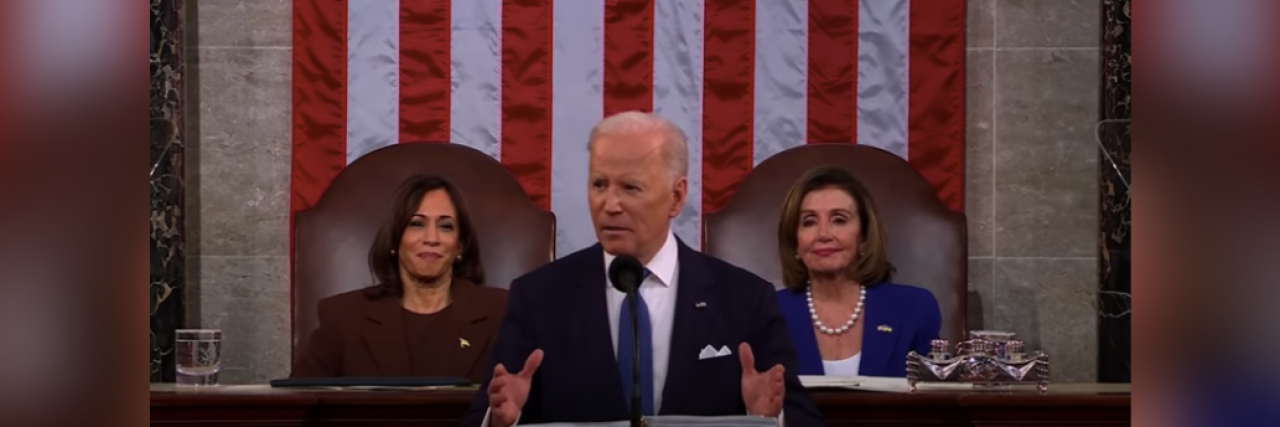In the past few decades, there has been scant focus on mental health. If COVID and the opioid crisis have taught us anything, it’s that we need to take care of our minds just as carefully as our bodies.
It’s no secret that Americans are experiencing intense mental health crises that clearly go with the territory of an unhampered international epidemic. According to the Kaiser Family Foundation, four in 10 adults, or 40 percent, have experienced or are experiencing depression or anxiety during the pandemic. It has increased fourfold.
Now the world is watching a war wage in Ukraine, another factor contributing to our collective negative thoughts and feelings.
Even though mask mandates and social distancing rules are fading, COVID has wreaked havoc. There’s the pain of those who have lost loved ones, the stress of social isolation, addiction, financial hardship, fear of eviction, concerns over job security, food insecurity, and a host of other problems. Not to mention those of us fighting the actual disease itself.
Death by COVID has reached one million in the United States, according to new figures announced in January by the CDC.
President Biden sees mental health challenges with clear eyes and he intends to meet them head on, if his plan receives financial support from the House and Senate.
In this story, I am not speaking as a Democrat or a Republican, I am speaking as a mental health advocate.
Quite notably, Biden intends to launch a “988” mental health services hotline. It would redirect all 988 calls to the Suicide Prevention Lifeline, which as it stands is a clunky, hard-to-remember 800 number.
New proposals involve requiring insurance companies to cover at least three behavioral health visits every year.
At last week’s State of the Union Address, Biden touched upon these topics on the House floor.
“Let’s take on mental health. Especially among our children, whose lives and education have been turned upside down,” he said in his speech. “Let’s get all Americans the mental health services they need. More people they can turn to for help, and full parity between physical and mental health care if we treat it that way in our insurance.”
The administration released a fact sheet last week outlining all of its plans for mental health, including $5 billion will be allotted for research on the effects of social media on children. Biden is calling on social media companies to stop collecting data on kids.
There is a major problem though. The Senate appears to be blocking any sort of legislation related to mental health. Even though the House of Representatives has passed the Build Back Better Act, which affords investment in mental health, it is stalled in the Senate.
A lot of Biden’s provisions were included in the Build Back Better Act. The House passed Build Back Better in November, but the measure is stalled in the Senate, where necessary votes from two Democrats — Joe Manchin (D-NH) and Kyrsten Sinema (D-AZ) — are stymied. No Republicans have signed on as of yet.
Thus it seems the only way to pass these mental health provisions is to break them apart and have them voted on individually, rather than in one giant Build Back Better package. It looks like that’s what the administration intends to do.
Even before he became President, Biden has been a trusted ally of the mental health community.
“As President, I’ll use the bully pulpit of the White House to eliminate the stigma around mental health,” Biden said before he was elected. “As a society, we need to work together to eliminate the stigma felt by those who are suffering and struggling with their mental health. We must ensure that everyone has access to affordable quality health care and that mental health services are covered.”
In other words, Biden believes in mental health parity, i.e. that mental health services should be covered as equally as physical health.
Back in 2013, Biden co-hosted, along with President Obama, the White House National Conference on Mental Health. The event convened mental health professionals, teachers, students, and others to open a dialogue on mental health.
The opioid crisis is another challenge Biden intends to address head-on. Because of the opioid crisis, our country faces unprecedented problems with addiction in our communities.
After the prior administration decreased funding by $142 million for the Substance Abuse and Mental Health Services Administration (SAMSHA), an allocation meant partly to curb the opioid epidemic, Biden countered with his American Rescue Plan in 2021, affording $3 billion in funding for SAMHSA.
Biden has signaled that he believes in rehabilitation, not incarceration. It’s a refreshing opinion from a Washington politician, and a long overdue affirmation to victims of the disease of addiction.
The administration is undoubtedly in our corner. We just have to convince the politicians in DC to let Biden work his mental health magic. And that’s why it’s important for all of us to inform ourselves and make our voices heard.
Image via President Joe Biden’s official YouTube

